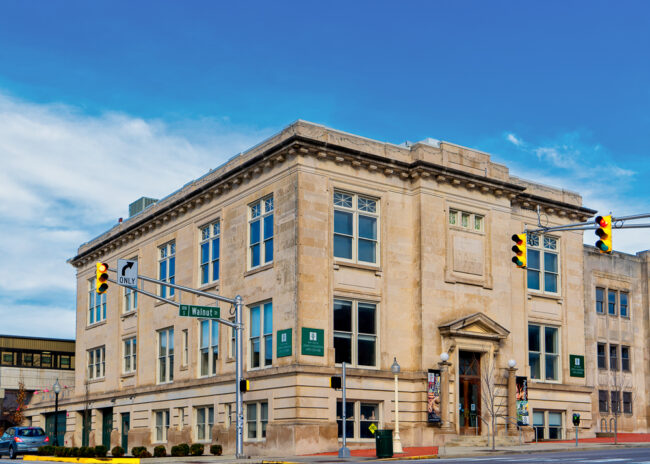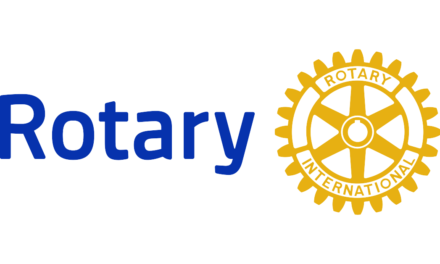
Editor’s note: The following is a press release from the City of Bloomington. Bloom has republished it here with minor edits for style and clarity.
The Waldron Recommendation Task Force has issued a report summarizing its activities, findings, and recommendations for future uses for the circa-1915 building at 122 S. Walnut. The ownership of the building reverted from Ivy Tech Community College–Bloomington to the City of Bloomington in January 2021. The report, available here, will inform the City’s actions with regard to the building’s future.
Convened by Mayor John Hamilton, the task force has been working since November 2020 in preparation for the ownership reversion to provide an evaluation of the building and offer short- and long-term recommendations for its future use. The 21-member task force consulted with eight specialized stakeholder focus groups in January 2021 to develop recommendations for the building’s future uses.
The task force recommends “leveraging the building to its fullest extent to support the performing and visual arts in the community,” with three specific recommendations:
- Extend the initial short-term use period to five years (from 1–3 years), allowing arts organizations utilizing the facility a secure, yet temporary opportunity to rebuild operation revenue post-pandemic. Provide minimum yet adequate funding for general upkeep and maintenance of the building.
- Continue public ownership of the building throughout the five-year short-term use period, through the creation of a new Cultural Improvement Corporation, which should oversee both the Waldron and the Buskirk-Chumley Theater and seek venue management from interested organizations, one proposal for which has already been received.
- Commission a third-party study to determine type, size, location, and cost for a future arts facility to be built within the downtown region, ultimately replacing the need for the Waldron as an arts facility.
The report also includes an appraisal of the property’s value at $2.8 million as of November 6, 2020, and reviews of the physical plant and estimates of critical capital improvements needed to maintain the building of $264,000 and an additional $251,000 in lower priority needs. Annual operational costs were estimated at $117,500.
“I sincerely appreciate the co-chairs and all the task force members who volunteered their time and expertise to participate in a process with significant bearing on the continued economic vitality of our downtown, and our celebrated, and beloved—and recently very challenged—arts community,” says Mayor Hamilton. “We look forward to the next steps of community dialogue and engagement to take these recommendations and move forward expeditiously.”
The Waldron Task Force was led by co-chairs Miah Michaelsen, deputy director of the Indiana Arts Commission, and Valerie Peña, assistant vice president/chief of staff for the Office of Government Relations & Economic Engagement at Indiana University, and comprised a cross-section of the Bloomington community including visual and performing artists and stakeholders, real estate and tourism industry professionals, historians, architects, and residents with insight into the facility’s previous transfers. The members of the task force are listed at The Waldron webpage.
Built in 1915, the building served as Bloomington’s City Hall and subsequently housed the City’s police and fire departments until the City deeded the property in 1990 to the Bloomington Area Arts Council. Since then, the building has provided gallery space, classroom space for art classes, two performance spaces, meeting rooms, and offices, and since 1994 has been the home of WFHB Community Radio. Ivy Tech owned and operated the building as a community art center from 2010, when it purchased the building from the City of Bloomington, until 2020. The building is listed on the National Register of Historic Places and is part of the Courthouse Square Historic District.










